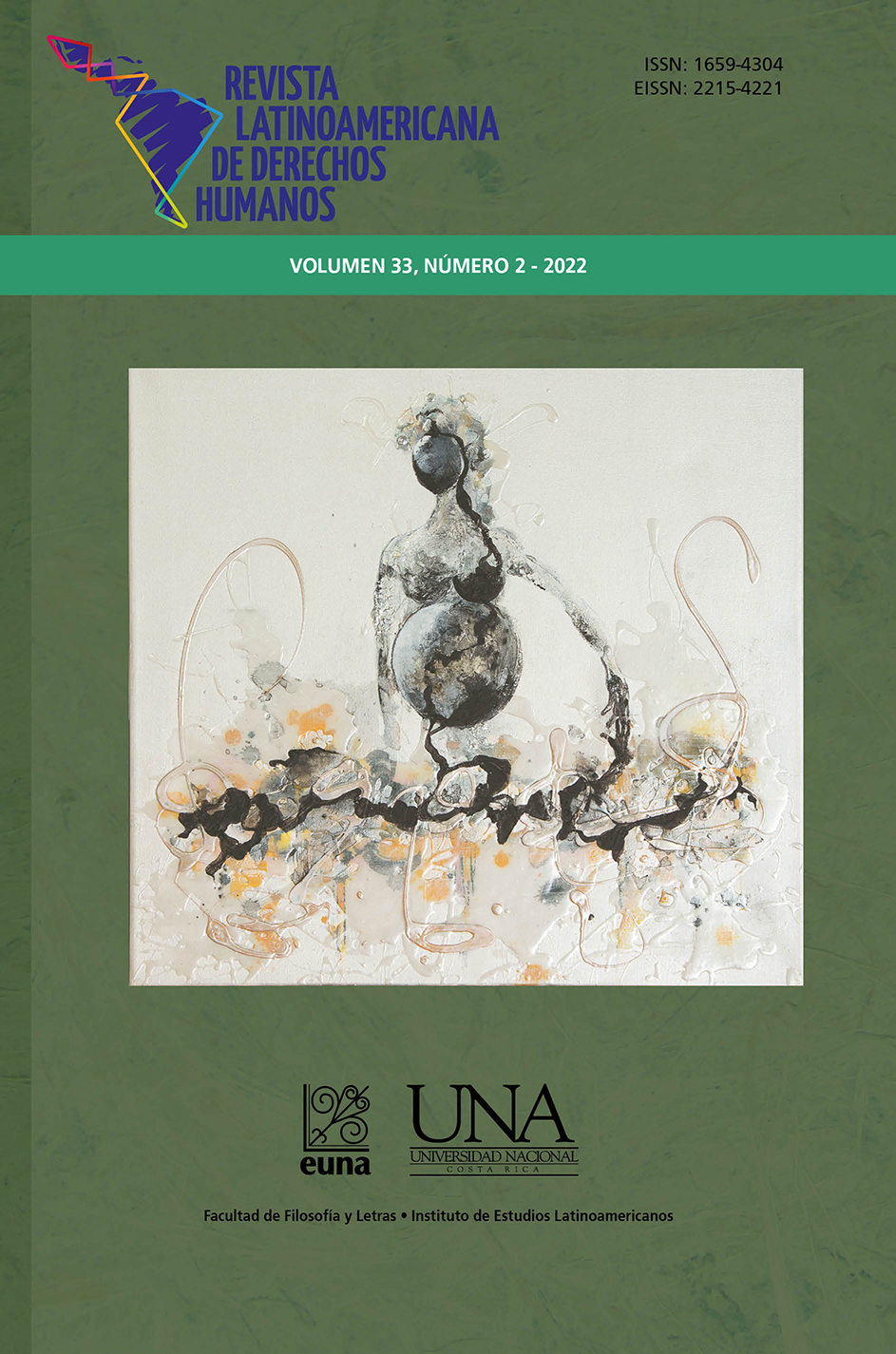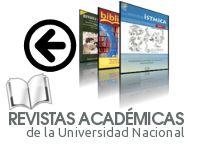The Human Right to Primary Education in the face of Covid-19, in Tecpan de Galeana, Guerrero, Mexico
DOI:
https://doi.org/10.15359/rldh.33-2.2Keywords:
Human right, Education, COVID-19 pandemic, VulnerableAbstract
The purpose of this article is to show the challenges and difficulties faced by primary school students in the municipality of Tecpan de Galeana, Guerrero, derived from the COVID-19 pandemic, since they have been significantly affected, because the Mexican State has been overwhelmed by the negative effects of the pandemic, and with it, various students have not been able to access or continue their education. The research is of a socio-legal type, due to the level and timing of the research carried out, it is descriptive, for the purpose is that of applied research, the inductive method was used and the paradigm used is the interpretive one. The techniques and instruments used were: data collection directly from reality, surveys and interviews, books, legislation, jurisprudence, magazines, among others. To do this, we will get to know what the reality is like for primary school children who reside in said municipality, in the same way we will get to know the measures that the Mexican State has taken in this regard and how effective they have been. In addition, all the recommendations made by various international organizations will be consulted. Among the main conclusions, it was found that undoubtedly the human right to primary education is a human right recognized not only by international organizations, but also by the Political Constitution of Mexico, as well as by State constitutions and laws. Therefore, the State has the obligation to comply with guaranteeing this human right. It was concluded that the Mexican State did not know how to take the appropriate measures, and did not invest enough to face the difficulties that arose in educational matters as a result of the COVID-19 pandemic. In addition to this, many parents were unable to pay for the various expenses involved in distance education, due to the unemployment that was triggered by the pandemic.
References
Álvarez, H., et. al. (2020). Los sistemas educativos de América Latina y el Caribe ante el COVID-19. Chile: Banco Interamericano de Desarrollo. 10.18235/0002337
Beltrán, M. (2007). La Importancia de la educación en los derechos humanos; especial referencia a América Latina. San José, C. R.: DEHUIDELA, https://www.corteidh.or.cr/tablas/r24457.pdf
Boletín N.º 167, (2020). Trabaja SEP para mitigar la deserción y el abandono escolar ante la pandemia por el COVID-19. México: SEP. https://www.gob.mx/sep/articulos/boletin-no-167-trabaja-sep-para-mitigar-la-desercion-y-el-abandono-escolar-ante-la-pandemia-por-el-covid-19?idiom=es
Cámara de Diputados, (2020). Constitución Política de los Estados Unidos Mexicanos. Texto Vigente. Recuperado el 30 de diciembre de 2020. En: http://www.diputados.gob.mx/LeyesBiblio/pdf_mov/Constitucion_Politica.pdf
Cámara de Diputados, (2022). Ley General de Educación. Texto Vigente. Recuperado el 11 de abril de 2022. En: https://www.diputados.gob.mx/LeyesBiblio/pdf/LGE.pdf
Carmona, J. U. (2019). Derechos Humanos y pobreza en Guerrero. México: CNDH. https://www.cndh.org.mx/sites/default/files/documentos/2019-08/Pobreza_DH_082018_Anexo.pdf
CEPAL- UNESCO. (2020). La educación en tiempos de pandemia COVID-19. Santiago de Chile: CEPAL-UNESCO. http://hdl.handle.net/11362/45904
Díaz-Barriga, Á., et. al. (2020). Educación y pandemia. Una visión académica. México: IISUE-UNAM. http://www.iisue.unam.mx/nosotros/covid/educacion-y-pandemia
García Jaramillo, L. (2006). “El Determinante influjo de la Filosofía del Derecho y la Investigación Sociojurídica en la Enseñanza del Derecho en Colombia”. Revista
Latinoamericana de Estudios Educativos, 2. https://www.redalyc.org/articulo.oa?id=134116843002
Hernández Sampieri, R., et. al. Metodología de la investigación. México: McGRAW-HILL, 2014.
INEGI, (s. f.) Educación. Guerrero. México: INEGI. http://www.cuentame.inegi.org.mx/monografias/informacion/gro/poblacion/educacion.aspx?tema=me&e=12
Informe anual sobre la situación de pobreza y rezago social. (2018). Guerrero. https://www.gob.mx/cms/uploads/attachment/file/288718/informe_estatal_color_Guerrero_vff.pdf
Naciones Unidas. (s. f.). Declaración Universal de Derechos Humanos. Recuperado el 30 de diciembre de 2020. En: https://www.un.org/es/about-us/universal-declaration-of-human-rights
Naciones Unidas. (2021). Declaración del Milenio. Recuperado el 11 de abril de 2022. En: https://research.un.org/es/docs/dev/2000-2015
Ricoy, C. (2006). “Contribución sobre los paradigmas de investigación”. Educação 31. https://www.redalyc.org/pdf/1171/117117257002.pdf
SEMARNAT, (2015). Índice y grado de marginación. México: SEMARNAT. https://apps1.semarnat.gob.mx:8443/dgeia/compendio_2016/archivos/04_pobreza/D1_POBREZA00_11.pdf
Tamayo, M. El Proceso de la Investigación Científica. México: Luminosa, 2002.
UNESCO. (2017). El Derecho a la Educación. http://www.unesco.org/new/es/social-and-human-sciences/themes/advancement/networks/larno/right-to-education/
UNESCO. (2020). El secretario general de las Naciones Unidas advierte de que se avecina una catástrofe en la educación y cita la previsión de la UNESCO de que 24 millones de alumnos podrían abandonar los estudios. Recuperado el 30 de diciembre de 2020. En: https://es.unesco.org/news/secretario-general-naciones-unidas-advierte-que-se-avecina-catastrofe-educacion-y-cita
Urrutxi, M. (2005). La educación como derecho humano. España: UNESCO Etxea, http://www.unescoetxea.org/dokumentuak/Educacion_Derecho_Humano.pdf
Vargas, Z. R. (2009). “La Investigación Aplicada: una forma de conocer las realidades con evidencia científica”. Revista Educación 33.
https://www.redalyc.org/pdf/440/44015082010.pdf
Zenteno, B. y Osorno, A. (2015). Elementos para el diseño de investigaciones jurídicas: Una perspectiva multidimensional. México: El Errante.
Published
How to Cite
Issue
Section
License
El material que se publica en esta Revista está bajo una licencia “Creative Commons” 3.0 Costa Rica (CC, Reconocimiento-NoComercial-SinObraDerivada 3.0 Costa Rica (CC BY-NC-ND 3.0 CR) . Esto significa que el material publicado en la revista se puede compartir (copiar y distribuir) en cualquier medio o formato considerando que se debe reconocer de forma adecuada la autoría del material y la fuente, no puede utilizarse con fines comerciales y no se aceptan las obras derivadas (remezclar, transformar o crear a partir del material).








